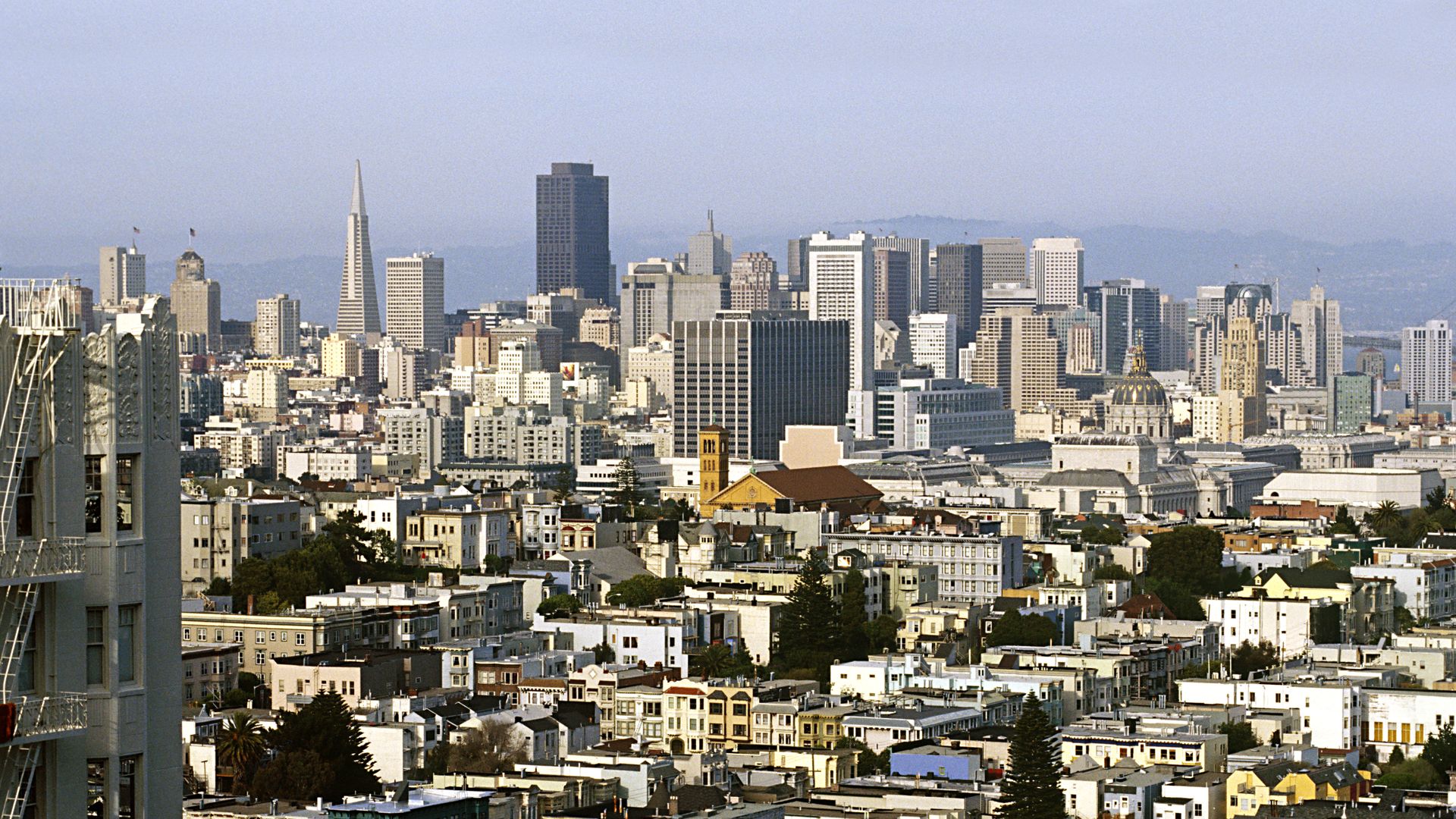S.F. officials seek to tax "overpaid" execs and stock compensation
Add Axios as your preferred source to
see more of our stories on Google.

Photo: Hoberman Collection/Universal Images Group via Getty Images
San Francisco’s board of supervisors has proposed November ballot measures that would tax companies that grant stock to their employees and those who pay top execs more than 100 times their median salary.
Why it matters: If passed, the measures, which aim to raise money for the cash-strapped city, could add to the growing acrimony between San Francisco and its tech-focused companies.
Details: Supervisor Gordon Mar revived a stock compensation tax proposal from last year.
- The new version would tax publicly traded companies an additional 1.12% on the value of employees’ stock compensation.
- The measure is expected to generate $50 million to $150 million annually.
In a separate proposal, Supervisor Matt Haney is seeking to add a tax on companies whose top executives' total compensation — including stock — is at least 100 times the median of its San Francisco-based employees.
- Companies would have to pay 0.1% (or more) of their gross receipts earned in San Francisco.
- The tax would cover companies that aren’t headquartered in San Francisco but meet a number of criteria. However, it’s unclear whether it would apply to privately-held companies and how regulators would enforced that.
- It's expected to bring in between $60 million and $140 million annually.
- Portland enacted a similar tax, which went into effect last year.
Between the lines: It’s no secret that many in San Francisco, including some elected officials, blame the tech industry for the city's stark economic inequality, especially in regards to the ongoing housing (and relatedly homelessness) crisis.
- This has been especially pronounced in recent years following a controversial tax measure best known as the “Twitter tax break” of 2011, which was passed to prevent the social media company from moving elsewhere and to incentivize companies that move into particular buildings in San Francisco’s blighted Mid-Market area.
- The city has reportedly lost an estimated $70 million in tax revenue (out of a total budget of $12 billion) without seeing great benefit to the area.
- In 2018, residents approved a tax meant to raise funds to fight homelessness, which was opposed by some tech execs.
The other side: Business execs, investors and advocates argue that these types of taxes could push companies to move out of San Francisco, or at the very least, choose not to set up shop there.
- “It makes no sense to suggest tax increases this year. Our local economy is still struggling from the COVID-19 pandemic, we’ve already seen several major employers leave the city, and our unemployment rate is at a record high,” Rodney Fong, president and CEO of the SF Chamber of Commerce, told the SF Examiner. “These tax increases will stall our city’s economic recovery.”
The bottom line: There will surely be another bitter battle in San Francisco over these ballot measures as business execs, especially in the tech industry, respond to what they see as unfair attacks on their business.
Go deeper: SF tech's bitter battle over taxes and homelessness
